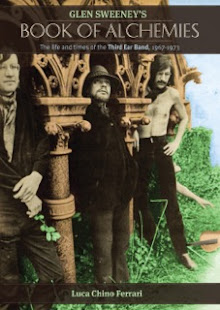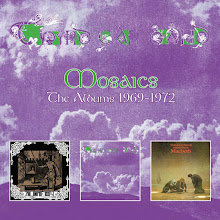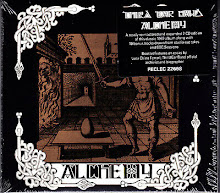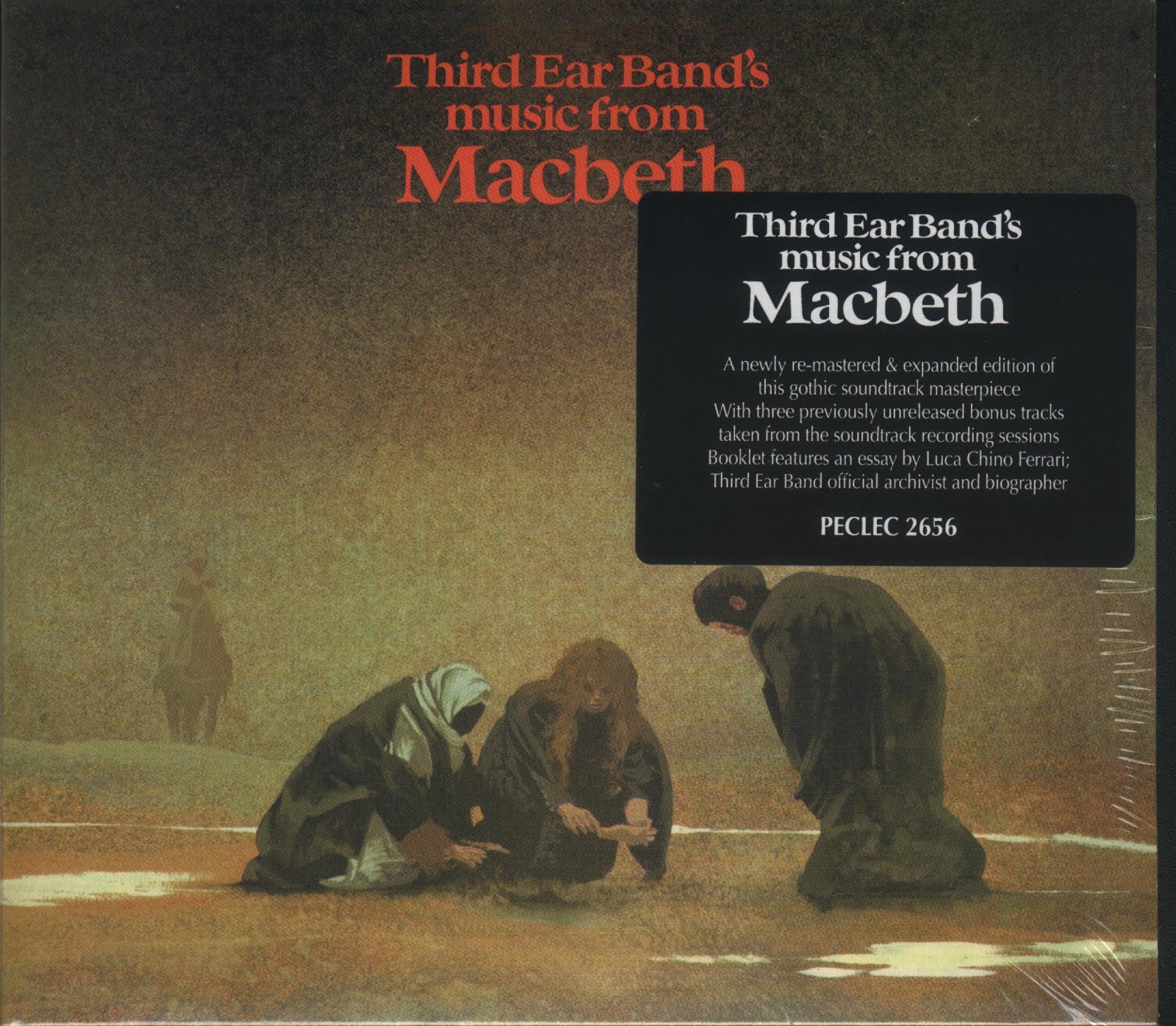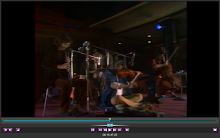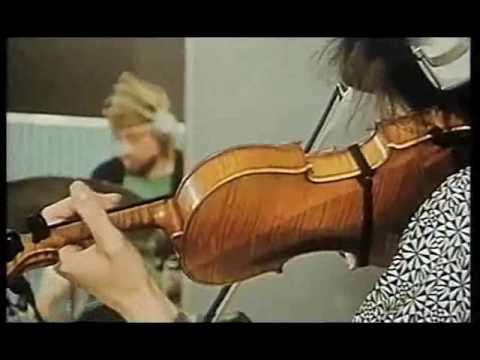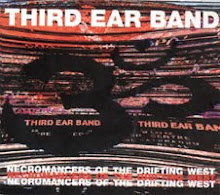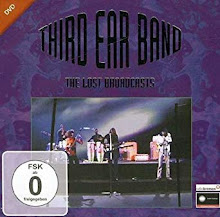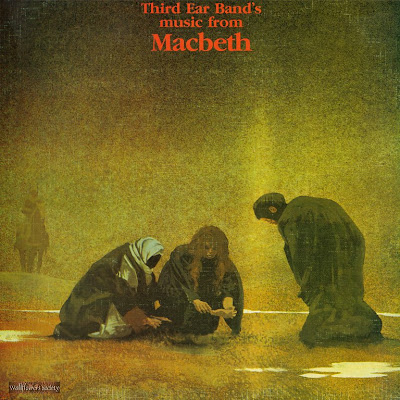After a four pages review about the "TEB" remastered editions on the last issue (February 2019), "Uncut" journalist Tom Pinnock collected some opinions by Blackhill manager Andrew King about Glen Sweeney and the band on the Blog section of the Web magazine (HERE).
Here's the very interesting interview (where Andrew King finally changes his opinions on the band)...
The Third Ear Band remembered: “Glen thought it was very good PR for us to be heavily involved in the druids”
Tom Pinnock
January 11, 2019
Manager and producer Andrew King recalls the strange world of Glen Sweeney

In a recent Uncut, I wrote about a couple of excellent deluxe reissues from a group that, despite the endless reassessment of the past, still remain obscure – the Third Ear Band. In the late ’60s and early ’70s, however, they were quite the sensation, outselling many other artists on the Harvest label, and supporting the Stones and Blind Faith in Hyde Park. Delightfully, their mix of improvised and otherwordly cello, violin, percussion and oboe still sounds strange in 2019, as you might discover if you track down a copy of their new Elements CD boxset on Cherry Red. As fascinating as their eerie music, though, is their incredible story, involving druids from Dorking, working for Roman Polanski, alchemy and an unlikely Egyptian sojourn during the Second World War for leader and percussionist Glen Sweeney.
The band’s manager and producer Andrew King explains more below – and you can track down the Uncut featuring my four-page Third Ear Band review, and New Order on the cover, until January 18th.
The Third Ear Band sold pretty well at the time, didn’t they?
"They sold better than almost any of the funny things we did on Harvest, apart from maybe Edgar Broughton. For instance, they always sold more than Kevin Ayers, which surprised me. They were pretty unique, I must say. I did listen to a bit the other day; it’s quite extraordinary. They were very strange. Glen Sweeney, good lord, what a guy."
How did they go down live?
"People never got up and started jumping around when they played, because it was the other way – it was more Quaaludes than speed – but they did go down well, yes. There was a small and devoted band [of fans] which gradually grew."
They seemed to be into all the countercultural interests of the era – drugs, mysticism…
"…and the concept of the drone – every hippie thing under the sun could be connected to it, one way or another. The whole aura around them was, I think, a manifestation of what Glen wanted. I think he controlled it – it’s hard to say how. Maybe he did it instinctively. The third ear, the whole mystic thing, he had it sussed."
He sounds a bit like a cult leader.
"Yeah, he was. The band was very much not a cult, though, it was very much four individuals, and he wasn’t seen as a spiritual leader, but he could be quite bossy. He was a lot older than anybody else – allegedly he had taken part in the Second World War, which makes him 20 years older than me. My favourite [of his war stories], which might be completely fictitious, is that he bailed out of an aeroplane over Cairo, floated down in a parachute, landed by the side of a swimming pool surrounded by half a dozen rich Egyptian ladies, and stayed there being looked after by them until the end of the war. "
What do you remember about the sessions for the second Elements LP?
"Allegedly they were completely off their heads on acid, but I naively didn’t realise it. I don’t remember them being any stranger than anybody else around that time, but maybe they were tripping away, a lot of people were. I would say it was all completely improvised. Glen might have a rhythm on his drums to start it going. All the Third Ear Band stuff was done in Studio 3 at Abbey Road. The engineers were very discreet and well behaved, but I did sense that they wondered, “What the fuck’s going on here? What the fuck’s all this about?”"
They played some big gigs – with Al Stewart, with the Stones at Hyde Park…
"[Blackhill] were quite ruthless – if someone had got a tour, we’d stick one of our other bands on it. And when we were doing the concerts in Hyde Park we’d stick all our bands on. I remember on the morning of the Stones concert, Paul Buckmaster phoned me up and said [poshly], “Andrew, what do you think I should wear? Should I wear a dark suit?”"
Ursula Smith was an important part of the second album. What was she like?
"She was a pretty good cellist. I think she’s still married to Steve Pank, who was the roadie. He famously once drove 40 miles the wrong way down the M1 with the band in the back. Steve was a legend for getting lost, always. It’s a miracle they ever got to any gigs at all with him driving. "
If there was a lead instrument, it was surely Paul Minns’ oboe.
"Paul Minns was a pretty extraordinary bloke – I say he’s the John Coltrane of the oboe, I think it’s quite amazing what he plays. There’s nothing to compare it with, his improvisations, I think they’re brilliant, utterly brilliant. Because of the way the reed’s constructed in oboes, you can make incredible noises with it."
What do you remember of their performance on Glastonbury Tor?
"That was really funny – straight out of Monty Python. Glen thought it was very good PR for us to be heavily involved in the druids, so for some solstice or another, or an equinox, we went down there and the druids all showed up and we walked up to the top of Glastonbury Tor. Marching up the hill, Glen was probably complaining about his leg… yeah, it was a war wound. He made out it was anyway. The druids did whatever druids do, sort of moved around and shook their robes and what have you, and the Third Ear Band played, and then we went down again and had a roast lamb and two veg lunch with them. I always remember, we went through all that crazy druid stuff, then they all suddenly turned out to be quantity surveyors from Dorking."
Were they serious about alchemy and magick?
"They were very good musicians; I don’t think they gave a shit about alchemy one way or another. I think they all thought they’d found a way to make some great music and they were going to have a go at it, and they did. Looking back at it now we can laugh at some of the hippie excesses, as they look to us now, but at the same it was very serious stuff. The music doesn’t sound dated at all, that’s the thing."
How did they come to be involved in Macbeth?
"Through one of Polanski’s producers, Hercules Bellvile, he was a nice chap. It was a great experience for everyone, going down to Shepperton in Polanski’s huge Rolls-Royce. It was very exciting. Polanski was just so bright and so smart, he was always 10 paces ahead of anybody. He knew more about everything – he knew every technical thing backwards, he knew exactly what he was trying to do."
It really was the perfect film for them to soundtrack.
"There’s something magic about the Third Ear Band. You don’t realise it at the time, then it’s hard to pin down years later, but there was something special there, there really was."
no©2019 Luca Chino Ferrari (unless you intend to make a profit. In which case, ask first)


















